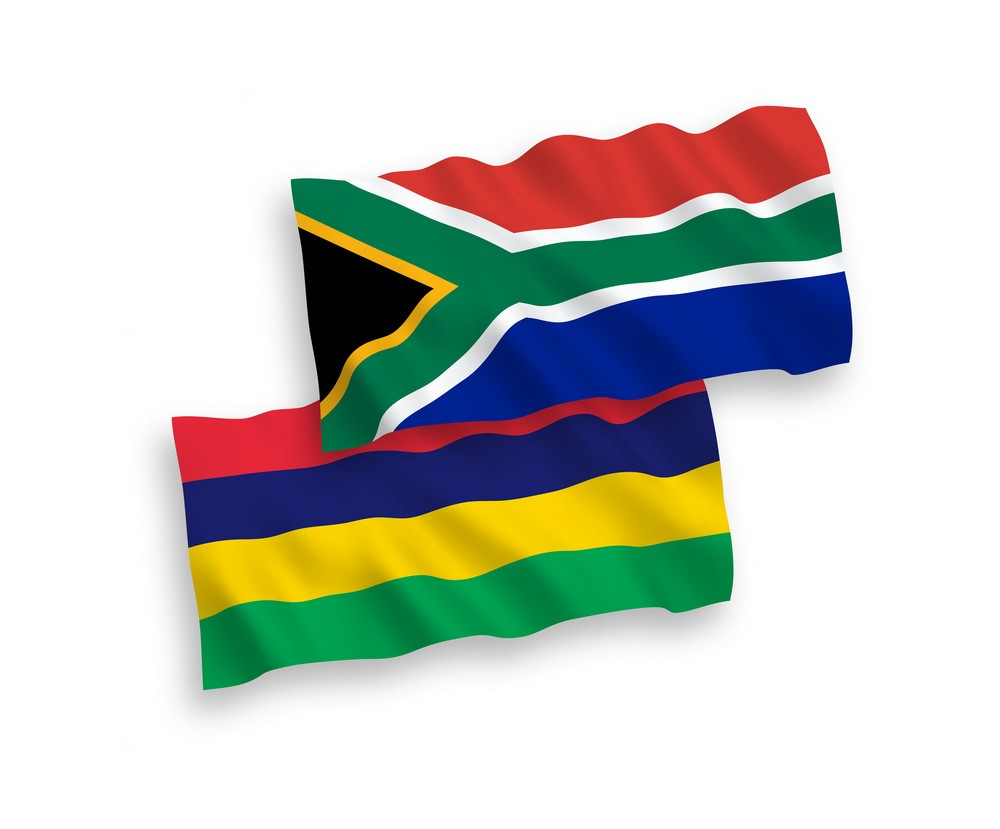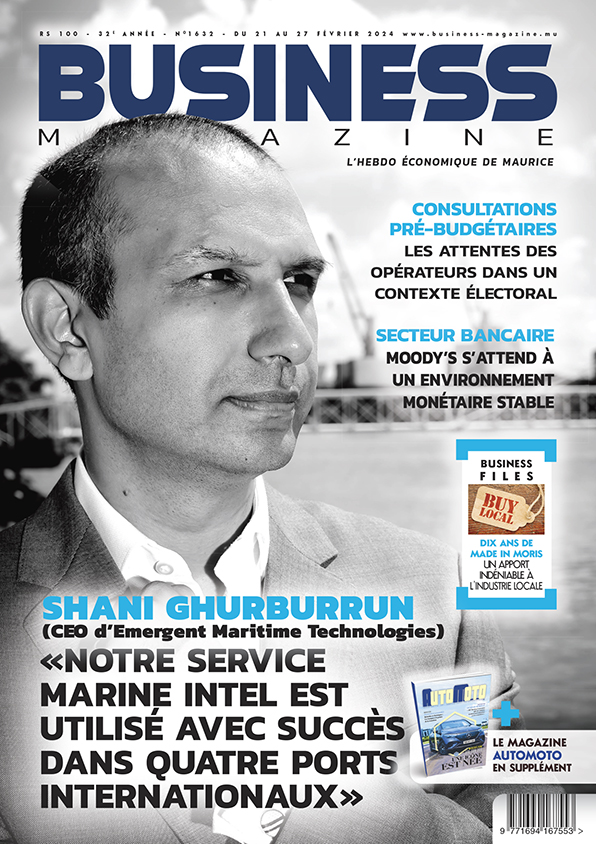Mauritius and South Africa : Explore opportunities to expand trade and investment ties
Share

The Republic of South Africa represents a significant source of revenue and intellectual capital to Mauritius. And with its favourable business environment, first-world infrastructure and stable economic and political situation, Mauritius represents an enticing investment destination for South Africans. As far as external trade is concerned, South Africa represents an important partner both as a purchaser of Mauritian goods and supplier of products to the Mauritius marketplace.
In 2021, Mauritius exported $238M to South Africa. The main products that Mauritius sent to South Africa are Non-Knit Men’s Suits ($64.6M), Knit T-shirts ($33.1M), and Light Rubberized Knitted Fabric ($15.8M). During the last 26 years, exports of Mauritius to South Africa have increased at an annualized rate of 11.5%, from $14M in 1995 to $238M in 2021. In 2021, South Africa exported $473M to Mauritius. The main products that South Africa exported to Mauritius were Coal Briquettes ($171M), Delivery Trucks ($18.6M), and Bovine ($14.5M). During the last 26 years, the exports of South Africa to Mauritius have increased at an annualized rate of 2.8%, from $231M in 1995 to $473M in 2021.
In 2022, trade activities further improved where both exports and imports of goods increased by 18.9% and 36.1%, respectively. The main Mauritian export market in 2022 was South Africa, with 13% of total exports. As for our imports, South Africa came third after India and China, with 9% of total imports. According to the latest figures, in February 2023, South Africa remained our exports destination with 9.4%.
“Over the past 26 years, exports from South Africa to Mauritius have experienced a consistent annual growth rate of 2.8%, reaching a remarkable USD 616M in the year 2022. It is worth mentioning that South Africa currently stands as the fourth-largest import partner of Mauritius. The primary products that Mauritius imports from South Africa include coal, automotive, and foodstuffs. In contrast, during the same time frame, exports from Mauritius to South Africa have skyrocketed at an annual growth rate of 11.5%, reaching an impressive USD 251M. As of today, South Africa holds the second-largest export partner position for Mauritius. Textile products and services stand out as the primary products that Mauritius exports to South Africa,” explains Navin Ramdoyal, Head of International Corporate (Africa) at AfrAsia Bank.
These figures show that there have always been important commercial and economic ties between South Africa and Mauritius. Location is definitely a major factor. Both countries are within reasonable and convenient travelling distance from one another. Those travelling on business into Africa often travel via OR Tambo International Airport to connect to their final destination. Both countries belong to the Southern African Development Community and enjoy underlying beneficial agreements to promote economic growth. Mauritius has placed itself as one of the more stable jurisdictions in Africa and has a favourable business framework for offshore investment into the rest of Africa and elsewhere.
There is an increasing use of this platform from South African companies to channel these investments. Trade and investment relations between South Africa and Mauritius continue to strengthen with the signing of a memorandum of understanding in promising sectors. The MOU signed in June 2018 is aimed at further developing the level of cooperation in the fields of fisheries, fishing, seafood processing, trade of fish and fish products by promoting aquaculture development and exchange of related expertise and technologies, amongst others.
“Historically, the two countries have signed several agreements to promote trade and economic cooperation, and they have a history of working together to strengthen regional integration and promote economic development in the Southern African region. South Africa has played a pivotal role in sustaining the traditional economic pillars of the Mauritian business ecosystem, making significant contributions over the past decades, notably in clothing, textiles, sugar and plastics. In the recent years, this economic partnership has been further amplified as Mauritius positions itself as a leading business and financial hub, facilitating trade and investment flows throughout Africa,” points out Navin Ramdoyal.
He explains that overall, the trade relationship between Mauritius and South Africa is one which is mutually beneficial, and both countries continue to explore opportunities to expand their trade and investment ties. The success of this relationship is heavily influenced by a multitude of factors. Among these critical elements are the presence of highly skilled professionals, political stability, a robust democratic framework, a workforce proficient in multiple languages, a favourable tax regime, double taxation agreements with various countries, and the absence of restrictive exchange controls. Together, these factors foster an environment that promotes sustained economic growth, encourages investment, and supports longterm partnerships between the two countries. It is essential that businesses and governments alike recognize the importance of these factors and work collaboratively to establish a conducive environment for commerce to thrive.
“Being members of the Southern African Development Community (SADC) and signatories of the Africa Continental Free Trade Agreement signed in 2018, both Mauritius and South Africa benefit from preferential trade terms. By leveraging the Mauritian IFC for procurement, we have successfully established a strong presence in both Mauritius and South Africa. This has enabled us to support local enterprises in Mauritius in funding their exports while simultaneously serving the South African counterparts in fulfilling their trade funding requirements,” adds Navin Ramdoyal.
But some observers believe that trade could be increased significantly between the two countries. South Africa has a large industrial and manufacturing capability which can compete very favourably with Europe. In addition to this advantage, Mauritius and South Africa are both members of SADC, so trade barriers have been eliminated and preferential duties are applied between member states.
Indeed, these two booming economies in Africa, members of same free trade agreements, are mutually reaping the following benefits such as access to an enlarged market which can foster economic growth because of economies of scale in domestic production; increase investment and higher total factor productivity growth from better access to technology; increased intra-regional trade along with inflows of foreign capital (mainly South African) can help to boost industrial development and in the diversification of the export base.
Both countries have positioned themselves in more recent years as financial centres capable of fuelling growth on the African continent. For some observers, both jurisdictions are complements to each other rather than competing for capital and trade flows in each financial centre.
“Over the past decade, South Africa and Mauritius have emerged as prominent financial centres in Africa, serving as catalysts for the continent’s economic growth. Instead of competing for capital and trade flows, the two nations have complemented each other in their respective financial domains. Under the jurisdiction of Mauritius, a flexible exchange control regime has been implemented, leading to the establishment of investment vehicles geared towards the Johannesburg.
Stock Exchange (JSE) and related foreign direct investments (FDIs) in South Africa. Consequently, Mauritius has attracted a significant proportion of transactional flows, while also developing a certain level of sophistication in debt offerings and dual listing on both the JSE and the Mauritius Stock Exchange,” states Navin Ramdoyal.
Thus, beyond economic partnership, Navin Ramdoyal has observed South African businesses leveraging Mauritius as a procurement hub and a backbone for expanding their operations beyond the borders of South Africa. In essence, despite its dot size, Mauritius has the potential to exert a far-reaching influence on the African continent. The factors driving this commercial relationship include a sophisticated professional skill set, adherence to the rule of law, an established democracy, a bilingual workforce, the absence of exchange controls, as well as the lack of capital gains tax or inheritance tax. All of these factors combine to position Mauritius as a substantial international financial centre for Africa.
Promoting trade and investment
End of last year, a Business Meet with the Small Enterprise Development Agency (SEDA) of South Africa, organised by the High Commission of South Africa in Mauritius, in collaboration with the MCCI, the Economic Development Board (EDB), was organized. The delegation from the SEDA, led by Ambrose Makgwale, included twenty women entrepreneurs from micro, small and medium-sized enterprises (MSMEs). Some twenty local companies were present at the Business Meet which aimed at promoting trade and investment between Mauritius and South Africa.
The South African Chamber of Commerce
The South African Chamber of Commerce in Mauritius serves as the collective voice of South African investment into Mauritius by the members, partners, and affiliates. The goal of the Chamber is to promote and facilitate investment, trade, and other business exchanges for the mutual benefit of South Africa, Mauritius, and the people thereof. The goals of the chamber are, amongst others, to organise events for their members to meet and discuss issues pertinent to their interests in Mauritius and South Africa, to collectively represent key issues for their members before the government and other relevant authorities, to advocate for the best interests of Mauritius and South Africa as an investment opportunity and trading partner, to provide networking opportunities for their members with members of their own chamber, other chambers, as well as key Mauritius decision-makers and leaders of industry and government, to promote the role of Mauritius as a regional hub and the destination of choice for the establishment of investment opportunities into the African continent, to promote, encourage, and facilitate trade, services and investment between South Africa and Mauritius and vice versa, to promote and facilitate the integration of businesses owned/managed by South Africans in Mauritius with the wider Mauritian business community.
Mauritius, a holiday destination for many South Africans
When it comes to tourism, the South African market remains a very important market for Mauritius. Tourist arrivals in 2022 from main markets were from France (238,864), United Kingdom (140,847), Germany (96,767), Republic of South Africa (96,316), Reunion Island (73,336), India (36,956), Switzerland (28,350) and Italy (23,035). Tourism has increased gradually from South Africa. But Mauritius is not a cheap destination and airfares to the island are often the same price as a trip to Europe. This has narrowed the market in South Africa to the more affluent tourist. In addition, alternative destinations such as those in South East Asia have increased their exposure in South Africa. According to some observers, Mauritius still remains a ‘bucket list’ holiday for many South Africans and they don’t see this changing in the near future.













